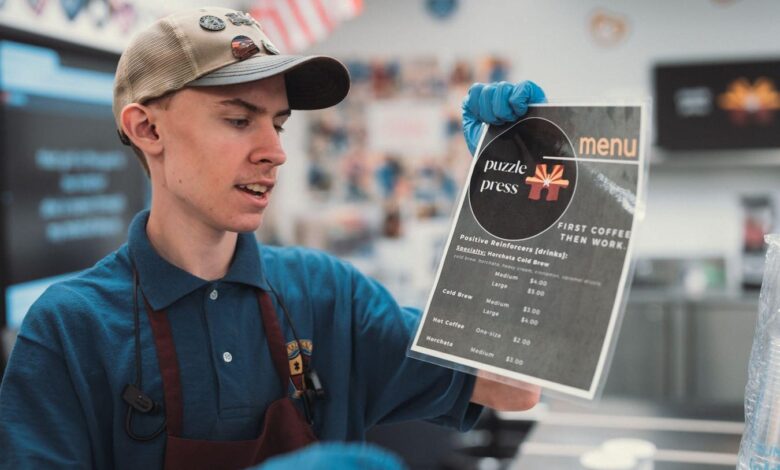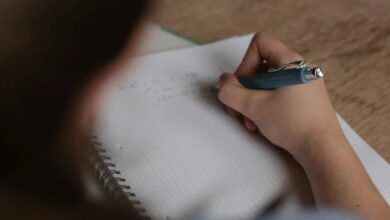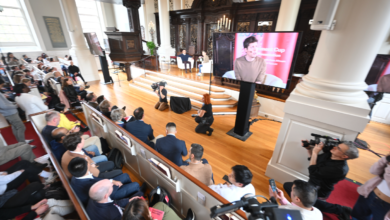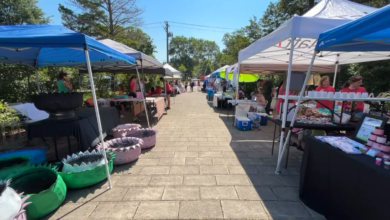K-12 Entrepreneurs Leave Nothing To Chance With Career Readiness

Arizona Autism Charter student working in the school’s Culinary Cafe.
In the landscape of education options, the pursuit of career readiness has evolved from a mere aspiration to a non-negotiable imperative. According to a recent national survey by YouScience, a company specializing in college and career readiness, 75% of high school graduates from the classes of 2019 through 2022 feel unprepared to make decisions about college and careers. This survey, titled the “Post Graduation Readiness Report,” included responses from over 500 students. Interestingly, despite this lack of readiness, the National Center for Education Statistics reported an 86% high school graduation rate for the 2018-2019 school year, the highest since 2010. The concerning reality this highlights is that graduating from high school doesn’t always equate to being prepared for college or a career.
Despite this sad statistic, which speaks volumes about the shortcomings of K-12 education, best-in-class education entrepreneurs highlighted by the Yass Prize are pioneering innovative models that bridge the gap between classroom learning and real-world work experience. These transformational leaders ensure students are equipped with the skills, knowledge, and connections for success in the modern workforce. From the “Earn While You Learn” model to initiatives focusing on skilled trades and entrepreneurship, these education innovators leave nothing to chance in preparing students for their future careers.
The Earn While You Learn Model
In 1996, Father John P. Foley founded Cristo Rey Jesuit High School in Chicago with a mission to break the cycle of poverty among children of Mexican immigrants. The school’s unique model combines college preparatory education with paid internships, providing students with valuable work experience while financing their tuition. What began as a single school has grown into the Cristo Rey Network of 39 schools in 24 states. Through partnerships with over 2,700 corporate sponsors, students earn a significant portion of their education costs, amounting to $60 million annually. This ensures the schools’ sustainability and equips students with practical skills that can be successfully applied in long-term jobs and careers.
Changing Trajectories Through Skilled Trades
Beyond traditional academic pathways, charter school networks, like Oakmont Education offer marginalized students who have dropped out and given up, opportunities to re-engage in education by giving them a shorter, attainable path to making a living.
Students can choose a path in skilled trades such as construction, manufacturing, healthcare, and special education. Earning nationally recognized industry credentials and engaging in hands-on workforce experiences, students gain practical skills and pathways to meaningful careers. Such programs prepare students for immediate employment and change their life’s trajectory by instilling a sense of purpose, pride, and self-sufficiency.
Building Homes Builds Character
At unCommon Construction, students from various high schools come together to build houses while earning hourly pay and school internship credit. This hands-on experience goes beyond technical skills, fostering leadership, teamwork, and problem-solving. Their innovative “Equity Award Scholarship” ensures that apprentices earn an income while they are in high school and invest in their future education or career path. Students gain a deeper understanding of the construction industry through this ultimate project-based learning experience of building a house.
Innovative Paths for the Neurodiverse
As the mother of a child with autism, and founder of Arizona Autism Charter Schools, the journey doesn’t end with my students graduating high school. Like my esteemed colleagues and Yass Prize awardees, I feel an urgency to create innovative career-readiness programs for neurodiverse students that extend beyond K-12. Our charter network is the only one in the nation implementing the WozEd K-12 curriculum, teaching students STEAM skills in the areas of coding, animation robotics, and drone flying starting in kindergarten and continuing throughout their school careers.
This hands-on curriculum, developed by Apple Co-Founder Steve Wozniak, offers industry certification in advanced high school modules, including the opportunity to earn an FAA drone pilot license at the end of the drone modules. Our students apply their skills with industry partners prioritizing internships for the neurodiverse. My team is also pioneering initiatives like an Adult Entrepreneurial Training Center, which will launch this summer and provide paid work experiences in the culinary arts, IT, shipping/receiving, and marketing, ensuring that graduates have opportunities for meaningful employment and ongoing skill development in a supportive environment.
Arizona Autism Charter School student Robert N. explains the components of a Rasberry Pi computer to … [+]
In contrast to the career-readiness experiences students partake in at the Cristo Rey schools, Oakmont Education, unCommon Construction, and the Arizona Autism Charter Schools, the YouScience survey reported that 75% of the high school students surveyed felt “moderately, slightly, or not at all prepared” for what might come next after high school. Significantly, 62% felt that high school should prepare them for future careers, but 57% reported five or fewer conversations with teachers or counselors about opportunities following graduation, and a large 80% felt they “would have been more engaged in their learning if they better understood their own aptitudes and potential career opportunities.”
Sammy Holland, son of Arizona Autism Charter founder, learns vocational skills in trades such as … [+]
That’s why the commitment to career readiness for K-12 entrepreneurs like myself opening charter schools, private schools, and other innovative models is a pressing and transformational endeavor for society. Our programs place students in real-world job experiences that make high school relevant and empower them to forge their futures and break poverty and disengagement cycles. In this way, education entrepreneurs are a permissionless force transforming the education landscape by integrating real-world experiences, industry partnerships, and entrepreneurial initiatives, leaving no aspect of students’ futures to chance.



